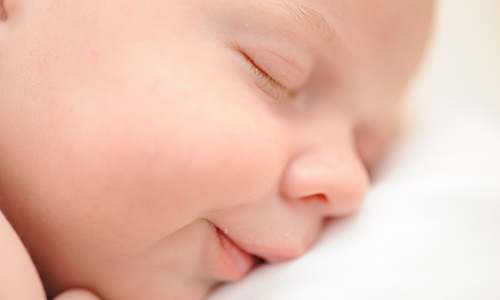
As mother’s, we are immediately buried with feelings of love and gratitude after our child is first born. But with this, comes loads of advice, suggestions, and information. It is usually given with the best intentions, but it is also overwhelming nonetheless. I can clearly remember all the times I heard “You should,” “You’ll want to,” and “You’ve got too.”
Of course, those feelings of love and gratitude persist to this day, and so does the endless advice. There’s no such thing as a casual mom. The gig is full-time, no matter if you’re a stay-at-home-mom, a working mom, or somewhere in between. Your kids are on your mind 24/7, no matter what else might be going on, so we tend to do a lot of research, and with access to unlimited data via the internet, mom blogs, or your mother-in-law, it’s inevitable to get conflicting information. So, in this blog post, I want to focus on my area of expertise, that being sleep, and try to dispel some of the more popular myths.
1. Sleeping too much during the day will keep baby up at night
Not likely, except in extreme cases. Unless your little one is sleeping practically all day and up all night, you probably don’t need to concern yourself with the length of their naps. Newborns especially need a ton of sleep. In fact, for babies up until about 6 months of age, I don’t recommend that they be awake for more than 2 and 1/2 hours at a time. For newborns, that number is closer to 45 minutes to an hour at a time.
What actually keeps babies awake at night, more than anything else, is overtiredness. You might think that an exhausted baby is more likely to sack out for a full night than one who slept all day, but it’s actually just the opposite. The reason we refer to it as being “overtired” is because baby has missed the “tired” phase and their bodies start to kick back into gear, which keeps them from falling and staying asleep. A baby who has gotten a decent amount of sleep during the day is far less likely to miss the sleep window. There are substantial variations depending on baby’s age and the length of their naps, but up to that 6 month mark,it’s really not uncommon for baby to be sleeping around 5 hours a day outside of nighttime sleep, so if your little one is still within those guidelines, let them snooze.
2. Sleeping is a natural development and cannot be taught
Sleeping is natural, absolutely. Everybody wakes up and falls back to sleep multiple times a night, regardless of their age. On average, children wake 2-5x/night. So no, you can’t teach a child to be sleepy. What can be taught, however, is the ability to fall back to sleep independently. The typical “bad sleeper” of a baby isn’t less in need of sleep, or more prone to waking up. They’ve just learned to depend on outside assistance to get back to sleep when they wake up. Once your little one has figured out how to get to sleep without assistance from outside sources, they start stringing those sleep cycles together effortlessly, and that’s the secret to “sleeping through the night”
3. Babies will naturally dictate their own sleep schedule
Our babies need extensive care and help in their development, and their sleep cycles are unbelievably erratic if left unregulated. If they miss their natural sleep cycle by as little as a half hour, their cortisol production can increase which causes a surge in energy, and things quickly spiral out of control. So as much as I wish babies could just fall asleep when they’re tired, it simply doesn’t work that way. That’s not to say that you shouldn’t respond to their cues, but you shouldn’t rely exclusively on them either.
4. Sleep training is stressful for the baby and can affect the baby’s mental well-being and the parent-child attachment
This has been proven incorrect by The American Academy of Pediatrics. According to a 2016 study, behavioral intervention (A.K.A Sleep training), “provides significant sleep benefits above control, yet conveys no adverse stress responses or long-term effects on parent-child attachment or child emotions and behavior.”
5. Babies are not “designed” to sleep through the night
Our little ones need our expertise and authority to guide them through their early years, and probably will for decades after that. This is especially true when it comes to their sleep. Some babies are naturally gifted sleepers, for sure, but don’t rely on the advice of those who tell you that babies should dictate their schedules. You’re in charge because you know best, even if it may not feel like it sometimes.
Remember, there are endless posts on social media and websites that portray themselves as factual, but there’s nothing stopping them from making that claim, regardless of their accuracy. Use trusted sources like the American Academy of Pediatrics, the National Institute of Health, the World Health Organization, and other national children’s health organizations, as these are excellent sources of information you can feel confident about using to answer questions about your baby’s health.
If things seem too overwhelming from endless hours spent reading and researching and you would like some support to get your child on track, my customized sleep packages and 1-1 support can help your family get the sleep you all need.
